Inverters
-
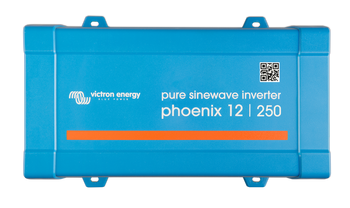
Victron
$86.70Inverters allow you to power domestic equipment - requiring 230V/120V AC - using 'leisure' or 'automotive' batteries rated at 12V, 24V or 48V DC. Models:250VA Features Highly Reliable - built for the years...$86.70 -


Victron
$1,154.30Pure sine wave output, high peak power and high efficiency. Combined high frequency and line frequency technologies ensure the best of both worlds. Models:3000VA Features SinusMax - Superior engineeringDeveloped for...$1,154.30 -

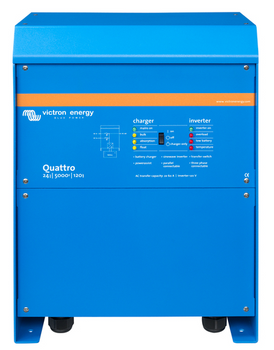
Victron
$1,389.75Similar to the MultiPlus, the Quattro is also a combined inverter and charger. Additionally it can accept two AC inputs and automatically connect to the active source. Its many features include a true sine wave inverter, adaptive charging,...$1,389.75 -


Victron
$772.65The MultiPlus, as the name suggests, is a combined inverter and charger in one elegant package. Its many features include a true sine wave inverter, adaptive charging, hybrid PowerAssist technology, plus multiple system integration features...$772.65 -
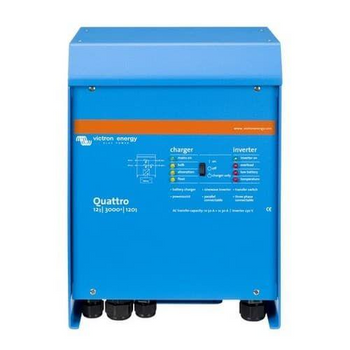

Victron
$2,984.35Similar to the MultiPlus, the Quattro is also a combined inverter and charger. Additionally it can accept two AC inputs and automatically connect to the active source. Its many features include a true sine wave inverter, adaptive charging,...$2,984.35 -
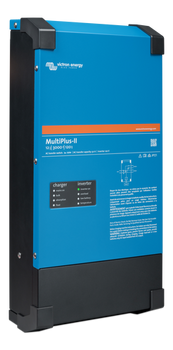

Victron
$1,088.00The MultiPlus-II 2 x120V is the perfect one-box mobile solution for standard North American 50A 120/240VAC split-phase applications. Whether it is supplied from shore power or a generator, the MultiPlus-II 2x120V can accept and passthrough...$1,088.00 -


Victron
$997.05Our new inverter/chargerThe MultiPlus-II combines the functions of the MultiPlus and the MultiGrid.It has all the features of the MultiPlus, plus an external current transformer option to implement PowerControl and PowerAssist and to optimize...$997.05 -


Victron
$1,168.75The MultiPlus, as the name suggests, is a combined inverter and charger in one elegant package. Its many features include a true sine wave inverter, adaptive charging, hybrid PowerAssist technology, plus multiple system integration features...$1,168.75 -


Victron
$861.90The MultiPlus, as the name suggests, is a combined inverter and charger in one elegant package. Its many features include a true sine wave inverter, adaptive charging, hybrid PowerAssist technology, plus multiple system integration features...$861.90 -
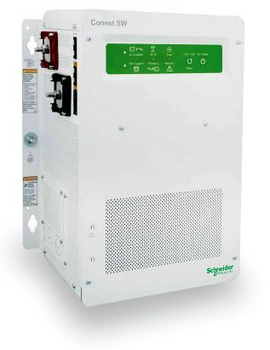 Schneider Electric, Conext SW4024-120/240 battery inverter, 4000W, 120/240VAC, 50/60Hz, 30A Transfer, 24VDC, Sinewave, 90A Charger, 2 Yr Warr, with BTS, 865-4024-21 Features Conext SW 120/240V is a pure sine wave, hybrid inverter...
Schneider Electric, Conext SW4024-120/240 battery inverter, 4000W, 120/240VAC, 50/60Hz, 30A Transfer, 24VDC, Sinewave, 90A Charger, 2 Yr Warr, with BTS, 865-4024-21 Features Conext SW 120/240V is a pure sine wave, hybrid inverter... -
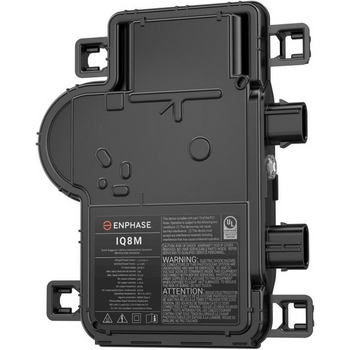
Enphase
$214.99Enphase IQ8A microinverter, compatible with 72-cell PV modules, 240V, 330VA peak power, Enphase Q Bulkhead Connector, IQ8M-72-2-US This newest line of IQ microinverters are the industry's first grid-forming microinverters with split-phase power...$214.99 -


Enphase
Our newest IQ8H Microinverters are the industry’s first grid-forming microinverters with split-phase power conversion capability to convert DC power to AC power efficiently. The brain of the semiconductor-based microinverter is our proprietary...
An inverter is an electronic device that converts direct current (DC) to alternating current (AC). Inverters are used in many applications, including renewable energy systems, uninterruptible power supplies, and electric vehicles.
In a renewable energy system, inverters are used to convert the DC power generated by solar panels or wind turbines into AC power that can be used in homes and businesses. There are three types of inverters used in renewable energy systems: grid-tied, hybrid, and off-grid.
Grid-tied inverters are used in systems that are connected to the utility grid. These inverters synchronize the AC power generated by the solar panels or wind turbines with the utility grid, allowing excess power to be fed back into the grid. This excess power is credited to the system owner's account, which can reduce or eliminate their monthly electricity bill.
Hybrid inverters are used in systems that have both renewable energy sources and a backup power source, such as a battery bank or a diesel generator. These inverters can manage the flow of power between the renewable energy sources, the backup power source, and the utility grid.
Off-grid inverters are used in systems that are not connected to the utility grid. These inverters convert the DC power generated by the renewable energy sources into AC power that can be used in the home or business. Off-grid systems usually have a battery bank to store excess energy for use when the renewable energy sources are not producing enough power.
Overall, inverters are an essential component of renewable energy systems, enabling the use of renewable energy sources and providing reliable and efficient power for homes and businesses.
